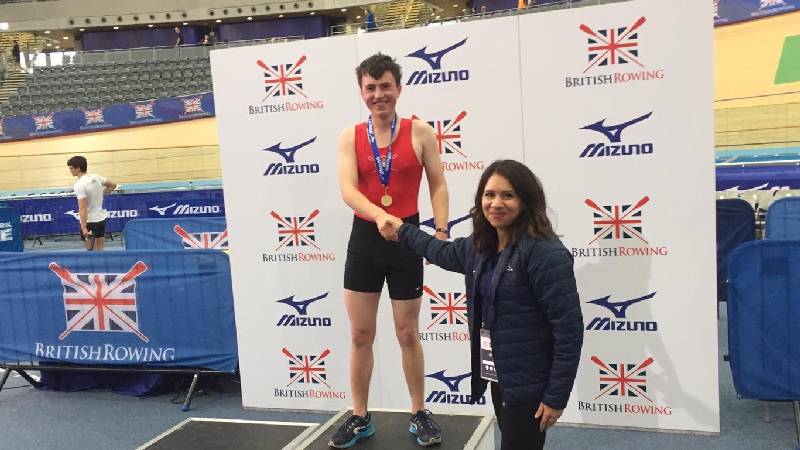Young rower inspired to get active by groundbreaking Oxford Brookes project

Work by Oxford Brookes University to increase the activity levels of children with neurological conditions is highlighted in a new National campaign. MadeAtUni: Energising Places, launched by Universities UK and British Universities and Colleges Sport, cel
Since it began in 2017, the CLEAR research programme at Oxford Brookes has helped over 1,000 children living with movement problems and another 250 children with more complex conditions, including learning difficulties or brain injuries, to be more physically active. Realising that children with conditions affecting their movement found it difficult to learn and take part in sport, the research team developed new approaches and additional support to increase their physical activity levels.
Young rower inspired by research programme
The CLEAR programme at Oxford Brookes inspired a teenager, who suffered a serious brain injury at just six weeks old, to become a leading rower. Sebastian Johnson, age 16 from Oxford, first took part in CLEAR whilst at primary school, having struggled to join in with school PE sessions. His brain injury had affected the strength and coordination of his left arm and hand. He is also visually impaired, has epilepsy and a moderate learning disability.
Following his experience on the CLEAR programme, he discovered rowing at age 11 and has gone on to become part of the British indoor para rowing team, winning a number of national and international titles and rowing for Falcon Rowing Club in Oxford.
Sebastian said: “I think it’s good when you’re at school and you have additional needs to have something where you don’t feel different. I remember first going in to rowing and feeling it was definitely a sport I could do with my disability. Over time, it gradually got easier and easier, and now I’m pleased to have won lots of medals in indoor rowing.
“I’m happy that my disability isn’t my only defining factor, and achieving in rowing has helped me accept who I am. The CLEAR programme project at Oxford Brookes has really helped me develop in lots of ways, so my message to people is if you have a disability, focus on what you can do and just have a go.”
Increasing activity, and confidence
Professor Helen Dawes leads the project at Oxford Brookes, and said: “We know the challenges faced in getting children to be physically active but for children with conditions affecting their movement, learning and participating in sport is even more difficult and can lead to increased levels of inactivity.
“By firstly analysing brain structures and functions and other body systems when children take part in activity, we’ve been able to work closely with teachers to develop an intervention programme which is tailored to their specific needs and helps increase their activity levels and confidence. It’s a great example of the work that universities do to address some of the wider public health and societal issues in our communities.”
Universities bring communities together
Campaign supporter, one of the UK’s most decorated Olympians and former Chancellor of Oxford Brookes, Dame Katherine Grainger, said: “Many people know that universities develop some of our greatest Olympians and Paralympians, but there is an untold story about their work in local communities that improves peoples’ lives through sport and physical activity.
“The pandemic has disrupted all areas of life, and our physical and mental wellbeing has suffered a great deal. The role universities play in bringing communities together to get fitter, healthier and happier will be more important than ever in the months and years ahead as we emerge and recover from Covid-19.”
To find out more about the Made at Uni Energising Places campaign follow @MadeAtUni on Twitter
